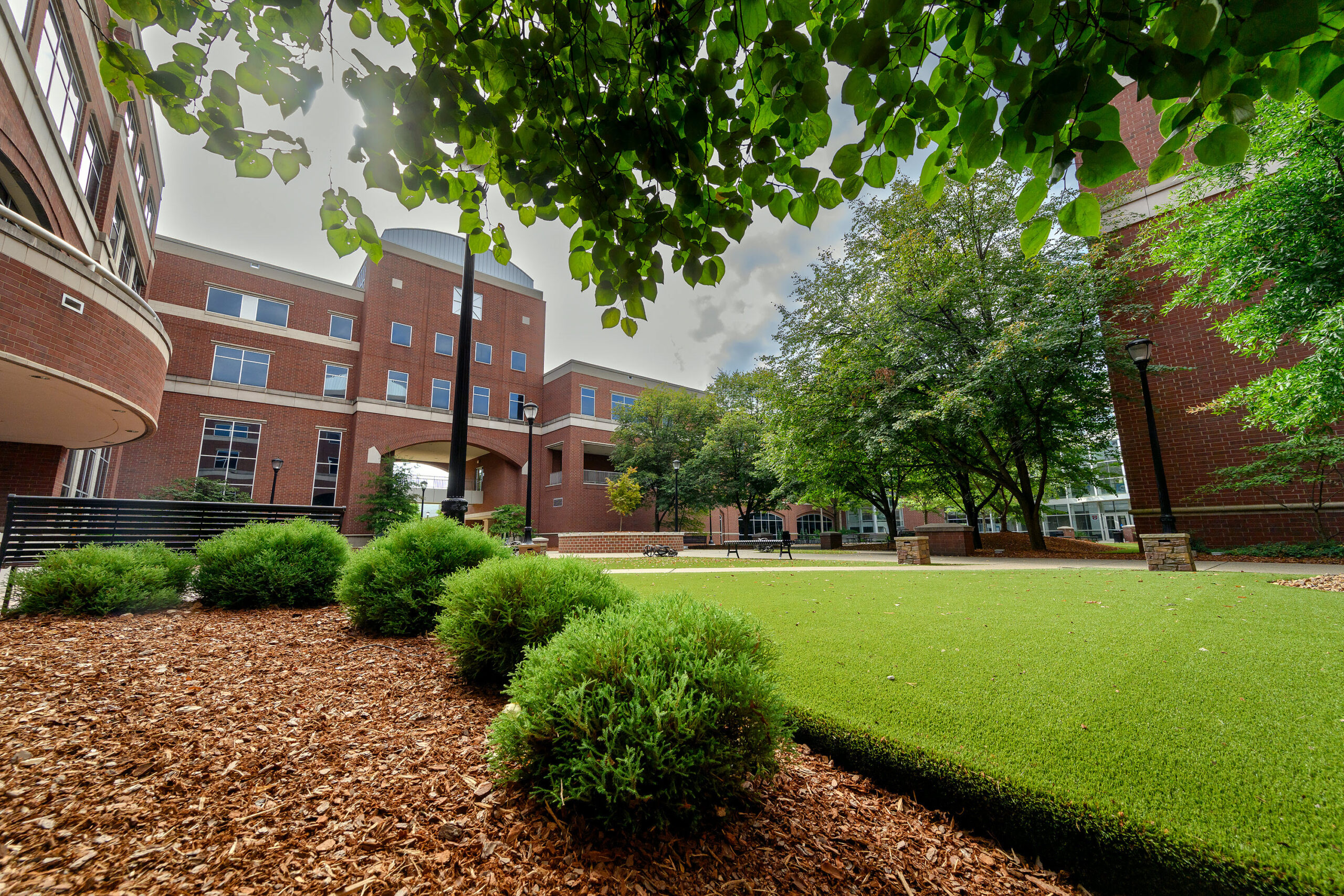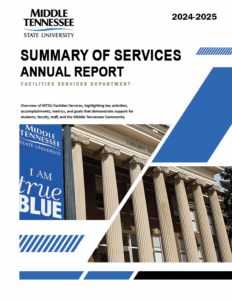Facilities Services
Energy Management Guidelines
MTSU Energy Guidelines – June 2012
The purpose of this document is to provide energy management guidelines that direct activities and decisions in the areas of energy use and consumption at Middle Tennessee State University (MTSU). These activities and decisions should support and enhance the mission of the university while promoting fiscal and environmental stewardship. To be effective, stewardship is a responsibility that is shared by the entire campus community. As such, this document provides a basic description of the MTSU utility systems and guidelines that address the major areas of energy management and energy end-use including:
- Facilities Operations
- Plant Operations
- New Facilities Design
- Employee Involvement
Overview
Energy and utilities are essential for a functioning campus. From the facilities that are occupied, to the technologies in use, to the vehicles in use for transportation; they all require some form of energy to be useful and effective. While recognizing the important benefits deriving from energy, Middle Tennessee State University (MTSU) also recognizes the costs associated with consuming energy – primarily economic and environmental.
Challenges
- The age and condition of the buildings and utility infrastructure
- The differing availability of automated controls and technology in facilities
- High student density leading to higher rates of facility scheduling and energy usage
- Capital and operating budget constraints
- Increasing regulation
- Periodic volatility of energy markets
Description of On-Campus Utilities
Facilities Operations
Employee Involvement
Employee involvement in energy management is essential for effectiveness. Please note the following
responsibilities and opportunities:
Plant Operations
Director Energy Services & Utilities: Jeff McConnell | 615-898-5883 | jeff.mcconnell@mtsu.edu
Facilities Services
Middle Tennessee State University
Facilities Services
PO Box 32
Murfreesboro, TN 37132
(615) 898-2414
facilities.services@mtsu.edu
We welcome your comments and questions. You may contact MTSU Facilities Services by calling our office or emailing us!
Work Orders
To submit a general maintenance, custodial, athletic facilities, and plant request:
Middle Tennessee State University
Work Orders
615-898-2308
Work Orders Website

